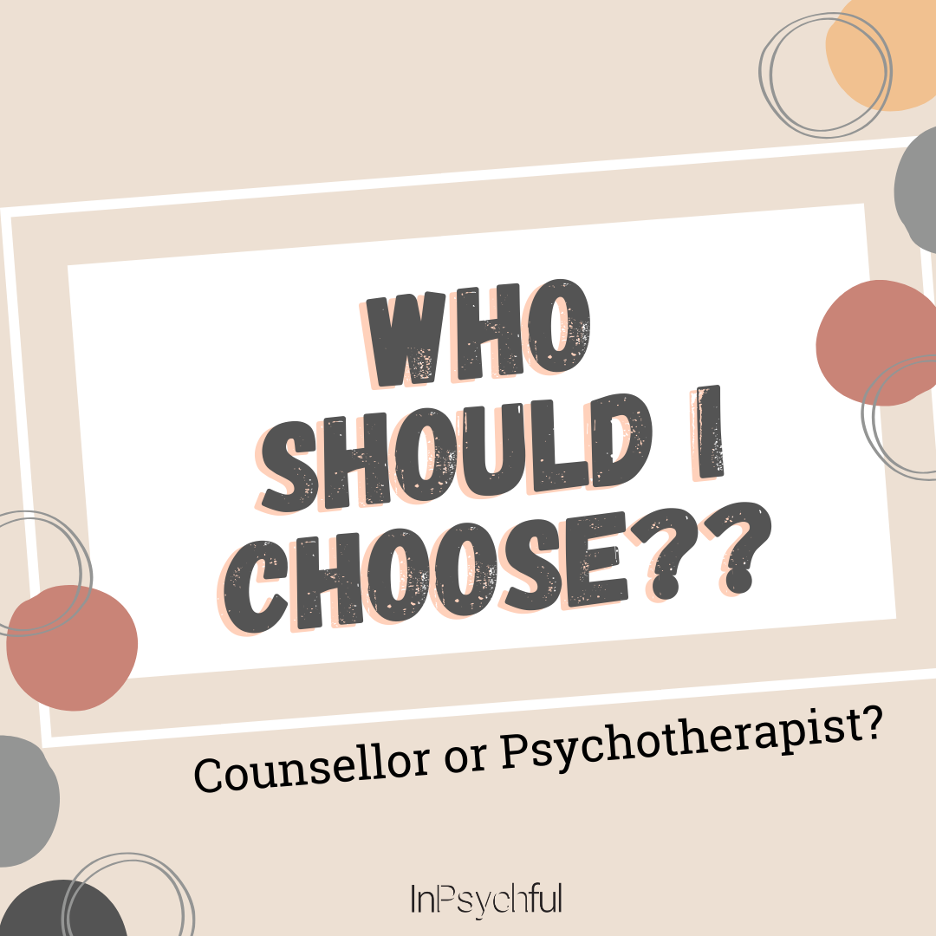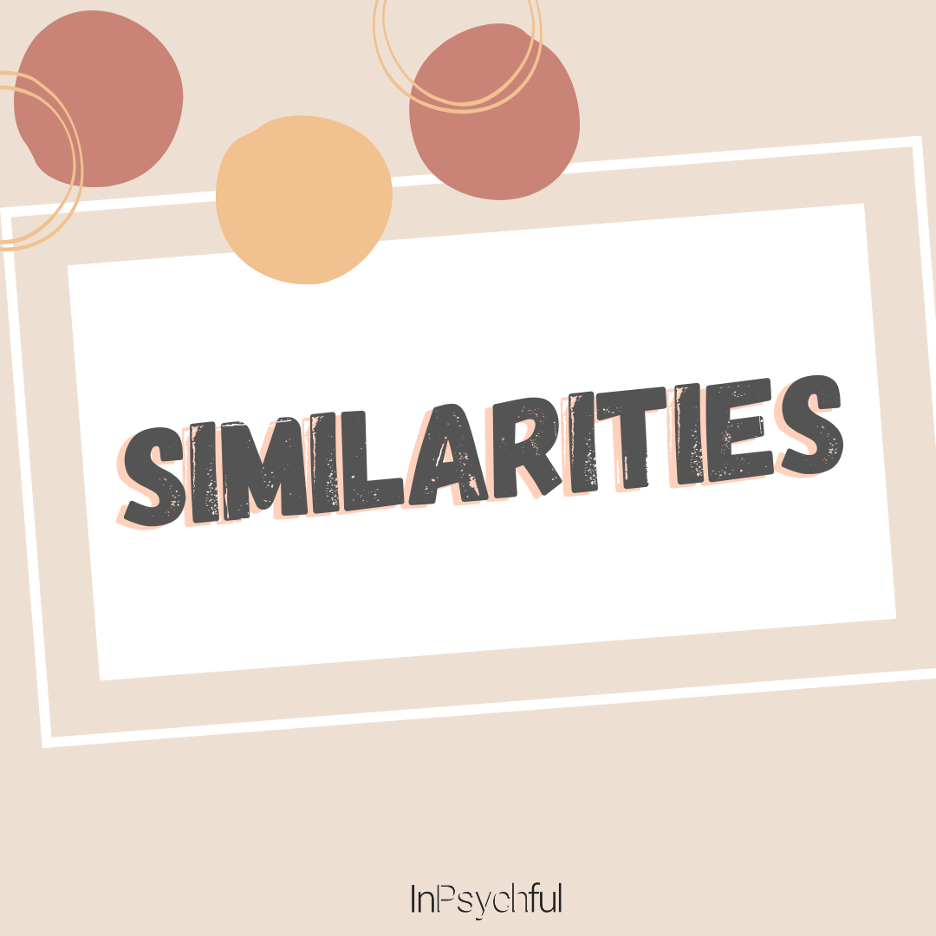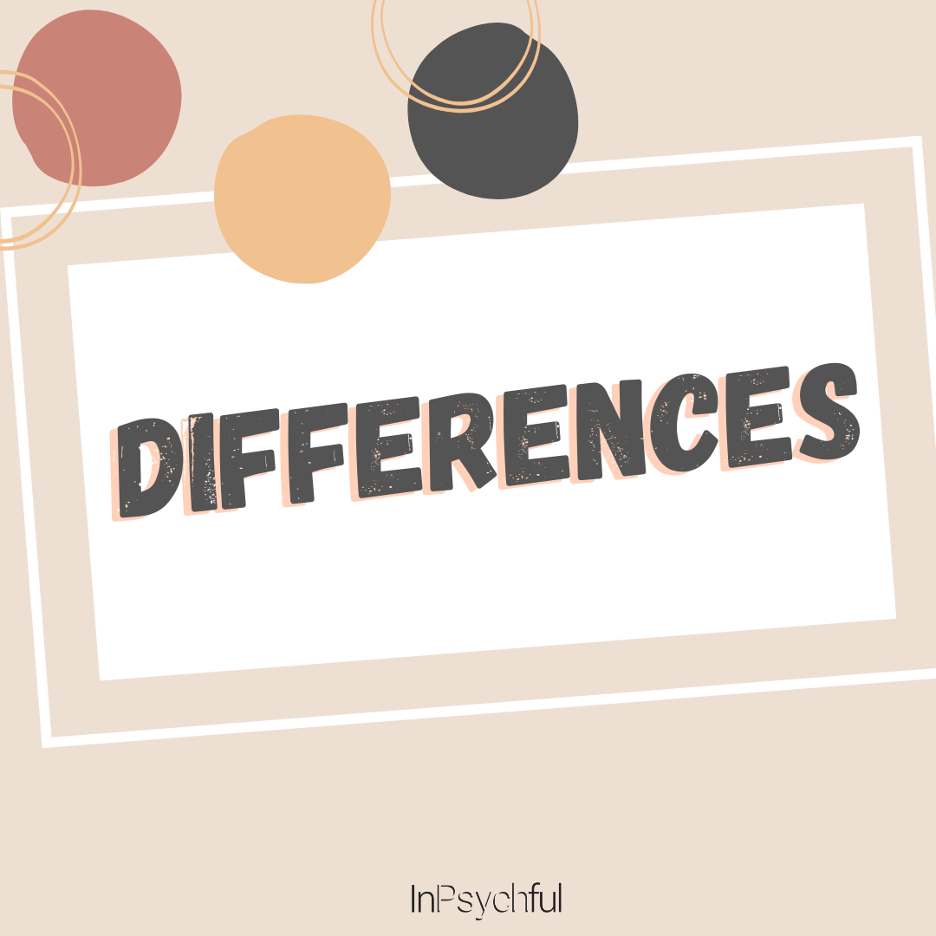Are you looking to seek help and you’re confused who should you go to? Is counselling and psychotherapy the same thing? Does it matter which one you go for? Most of us would probably have heard of counselling but what exactly is psychotherapy? This could be an overwhelming task to search up on if one is completely new to this field.
Many questions may pop up when you are searching to find the right therapist. Both professions may seem to have many overlaps thus, many people often interchange the words counselling and therapy but they do have their stark differences. Understanding some of the differences between counselling and psychotherapy may be helpful in choosing the right mental health professional that will be most effective for you as an individual. We will explore more of these questions and provide some tips on what to expect when going for your first session.
If you were to book an appointment, both counsellors and psychotherapists are trained to help clients deal with problems such as addiction, grief, anger management etc. Whilst they have their different educational backgrounds and specialisations, they both focus on improving the mental health of their clients. Their main similarities include:
- Developing a safe, healing and therapeutic relationship between both the therapist and client
- Effective in reaching a wide target group, including both adults and children
- Seek to understand the challenges client’s face and address their issues with the goal of improving one’s life (Schimelpfening, 2020)
To help us put things simply, we could compare a counsellor to a family physician or a general practitioner while a psychotherapist could be corresponded to a medical specialist.
Counsellors typically deal with current issues and find practical solutions specific to them. They focus on present-day behaviour with the intention of helping the client explore ways on improving or changing it. It is usually short term consultations ranging from a few weeks up to half a year. The most common method in counselling is talk therapy which mainly aims to help the client identify the issue that is causing their emotional distress (Lindberg, 2020). Counsellors also typically hold a Masters in counselling or have a postgraduate diploma with a specific number of clinical hours to become a registered counsellor in Singapore (NCSS, 2018) (You may check out our previous blog here to find out more about their differences in education https://inpsychful.sg/counsellors-therapist-psychologists-singapore/). Similar to a family physician, counsellors are also able to refer the client to an appropriate specialist or psychotherapist in this case, if they deem that psychotherapy would be a more effective treatment in helping the client recover.
You may consider seeing a counsellor if:
- You see your issues as short-term
- You feel that your issues are quite generalised and common
- You just need some guidance and support to learn to formulate healthy solutions yourself (Khan, 2020)
Psychotherapists generally focus on chronic or recurrent problems. They are more concerned with their client’s thoughts, how they perceive certain issues and how they derive conclusions based on their reasoning for their behaviour. Psychotherapy is effective in helping to uncover the root cause of the problem. The goal is to empower the individual by allowing one to recognise the trigger and be aware when similar issues occur again. The treatment plan is usually long-term as they strive to help clients make sustainable and long-lasting changes to the way they perceive and adapt to the world. There are actually various types of psychotherapy but the most commonly used one is cognitive behavioural therapy. Some therapists may also recommend taking certain tests like personality, intelligence and cognitive reasoning (Australia Counselling, 2020).
You may consider seeing a psychotherapist if:
- You have significant problems that are impacting your life and relationships such as
- Overwhelming feelings of sadness or helplessness
- You feel that your problem is very specific and require a therapist with such a specialisation
- You are at risk of harming yourself or others
- You feel your situation will never improve despite, receiving help from family or friends
- You’ve seen a counsellor and no progress is made although, you have been actively working on solutions (Brazier, 2020)
Before diving straight into booking for your appointment, it would be good to make some enquiries and prepare yourself beforehand. This may help you to feel at ease, if you made a good choice whether this professional is able to aid you in your needs. Here are some things to note before choosing your mental health professional:
- Request for a phone call with the professional if possible
- Ask about the professional’s approach in dealing with mental issues and how they usually work with clients
- You may describe your reason for wanting to make an appointment and ask if they are experienced in dealing with such cases (Casarella, 2019)
If you feel comfortable talking to them and they are equipped to help you, the next step would be making an appointment.
Tips to take note before you head for your first appointment:
- Think of what you want to achieve from the session
- Go in ready to be open and honest
- Don’t be afraid to ask questions. Make a list of what you would like to bring up in your first session
- Expect to feel uncomfortable at times
- You can speak up if you have differing views from what is being said (Risher, 2017)
Whether you decide to see a counsellor or psychotherapist, it is important to know who you are going to for help. Essentially, they both have different approaches but aim to reach the same goal of helping you improve your mental health. However, rest assured even if you are still unsure, these professionals are able to advise you on whom you could seek treatment from. If you know a friend or family member who is in need of help, don’t be afraid to reach out to them and encourage them to speak to a professional. If you know you are struggling, don’t keep it to yourself. Try it out and you may even find yourself enjoying the session!
Authors: Camellia Wong (M.A), Sara Chiang
More Articles:
References
Australia Counselling. (2020). What’s the difference between counselling and psychotherapy?https://www.australiacounselling.com.au/whats-difference-between-counselling-and-psychotherapy/.
Casarella, J. (2019). Psychiatry, Psychology, Counseling, and Therapy: What to Expect. WebMD.
https://www.webmd.com/mental-health/guide-to-psychiatry-and-counseling#4.
Khan, N. (2017). Which Is Better? The Psychotherapy Vs Counseling Debate. BetterHelp. https://www.betterhelp.com/advice/psychologists/which-is-better-the-psychotherapy-vs-counseling-debate/.
Lindberg, S. (2020). What Is Talk Therapy? Healthline. https://www.healthline.com/health/mental-health/talk-therapy.
NCSS. (2018). Introducing the Social Service Tribe. NCSS. https://www.ncss.gov.sg/Social-Service-Tribe/CareersDetail/Counselling.
Risher, B. (2017) Important Tips for Anyone Starting Therapy for the First Time. SELF. https://www.self.com/story/first-therapy-appointment.
Schimelpfening, N. (2020). What’s the Difference Between a Counselor and a Psychotherapist? Verywell Mind. https://www.verywellmind.com/counselor-or-psychotherapist-1067401.



